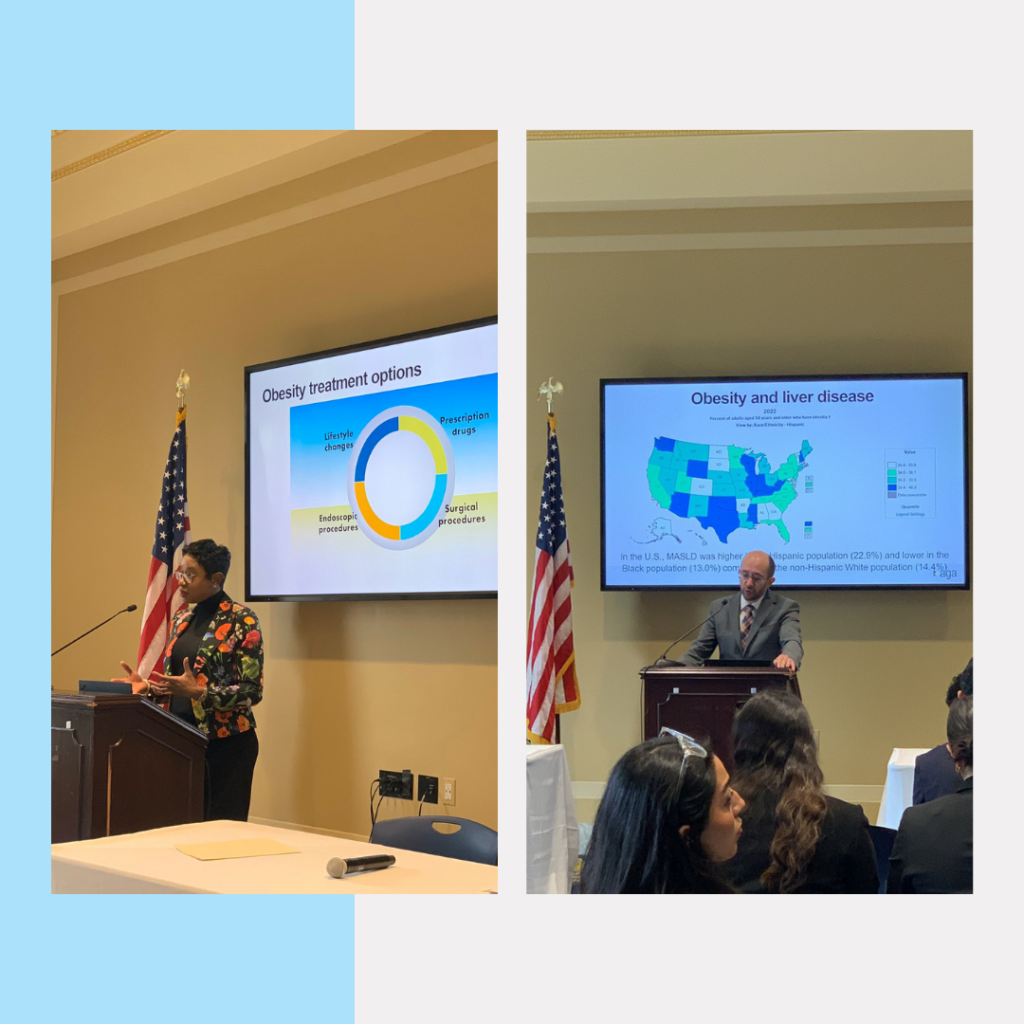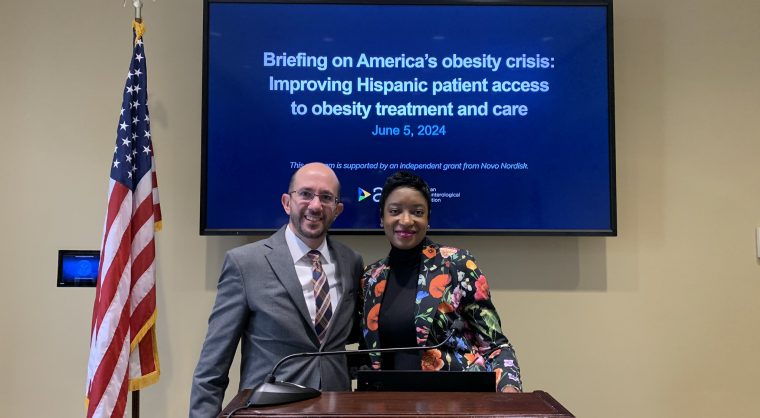Obesity affects nearly 42% of Americans. What’s developed into a more concerning trend is how some ethnic and racial groups are disproportionally affected. For example, 47% of Hispanics are impacted by obesity, which can increase the risk of health conditions like GERD and liver disease.
While patients may not come to gastroenterologists for obesity treatment, the link between obesity and other serious GI health conditions shows why GIs are key to helping patients maintain a healthy weight and treat obesity.
There needs to be more done to bridge the intersection between understanding obesity as a health condition and treating it – and related GI conditions – by increasing the full scale of treatment options.
AGA hosted a congressional briefing to educate and increase awareness about the obesity epidemic and encourage congressional support for the Treat and Reduce Obesity Act (TROA). TROA would expand Medicare coverage to include the screening and treatment of obesity by a wide range of health care specialists, including GIs. This is a necessary first step to improving treatment access since Medicare sets a precedent for insurance companies to follow.
AGA members Janese Laster, MD, founder of Gut Theory Total Digestive Care in Washington, D.C., and Andres Acosta, MD, PhD, associate professor of medicine of gastroenterology and hepatology at the Mayo Clinic and co-director of the Nutrition Obesity Resource Center in Rochester, Minnesota,

served as briefing speakers, along with Elena Rios, MD, MSPH, MACP, president of the National Hispanic Health Foundation and former president and CEO of the National Hispanic Medical Association.
During the briefing Drs. Laster and Acosta educated congressional staffers about obesity as a chronic condition, the role GIs have in treating obesity, and the connection between GI health, obesity and the Hispanic community.
Dr. Acosta explained how genetic factors and cultural norms in the Hispanic community increase obesity-related health risks, such as metabolic dysfunction-associated steatotic liver disease (MASLD), and why the full spectrum of treatment – lifestyle changes, prescription medications, endoscopic procedures and surgical procedures – are necessary to help Hispanic patients manage obesity.
As a part of her remarks, Dr. Rios advocated for members of Congress to lend their support to TROA, noting how advancing the health of Americans and providing a greater scale of obesity treatment options should be a bipartisan issue. Doing so will benefit the wellbeing of the country and be more economical in the long term.
An engaging question and answer session followed the speakers’ remarks, and Drs. Laster and Acosta were able to answer questions about health and nutrition and provide more specifics about the prevalence of obesity and emerging treatment options, such as prescription medications.
Thank you to Drs. Laster, Acosta and Rios for using their expertise to advocate on behalf of patients living with obesity. We continue to advocate for Congress to pass TROA.
@AmerGastroAssn hosted a briefing on Capitol Hill today to educate policymakers about #obesity in Hispanic communities. Great to see such a strong desire on the Hill to learn more about how lawmakers can help improve conditions for people with #obesity by passing #TROA pic.twitter.com/YCz0WewXCJ
— Obesity Care Advocacy Network (@ObesityAdvocacy) June 5, 2024
Thank you @RepMcGovern for taking the time to meet with @dr_aac! We had a productive conversation about the need to pass the Treat and Reduce Obesity Act (#TROA) and improve access to nutrition for all Americans. pic.twitter.com/8zxm3s5c7o
— American Gastroenterological Association (AGA) (@AmerGastroAssn) June 5, 2024













